THE HIGH DESERT CHILDCARE AND EDUCATION CRISIS
Families Need Support
NOTE: Adapted from a presentation to the Twentynine Palms City Council, 11/8/22. Presentation slides included throughout.
My name is Kimberly Andromeda Zzyzx. I am an artist, teacher and Director of local education program, the Institute of Inquiry. Having worked in education for the past 17 years, I am acutely aware of the foundational importance that quality Early Childhood Education (ECE) plays in children's healthy development and success. Mayor Karmolette O’Gilvie was kind enough to invite me to speak on the topic of Childcare and Educational Equity at a recent Twentynine Palms City Council meeting. What follows is an adaptation of my presentation. It is my continued hope that by sharing this information our community can begin to understand the gravity of the educational crisis facing families in the high desert, and find inspiration to take action.
Why Quality ECE Matters
The Morongo Basin is considered a childcare desert. According to the 2020 census1 , Twentynine Palms is home to 3,566 children under the age of 5. Less than 400 of these children have access to a licensed childcare space. Our county is ranked 56th out of 58 counties in California2 in this regard.
These statistics are sobering. Our region encompasses some of the most beautiful landscapes of the Mojave Desert but as a rural community we struggle to deliver educational equity in many areas. Joshua Tree National Park drew 122 million in tourist spending in 2020 and average home sale prices ballooned another 41.8% in the year that followed. We need pathways for these funds to contribute to the critical social support needs and stability of our community. We are not providing for our families in the ways needed.
You may have heard of something called Adverse Childhood Experiences (ACEs). This is a metric created to track the long-term effects of different challenges experienced during childhood. Things like parental incarceration, divorce, food insecurity, substance abuse, and poverty are all childhood ACEs. ACEs can have an outsized impact on development, lead to health problems later in life and drastically impact children’s ability to succeed academically and in general:
You can learn more about ACEs through this NPR article, and take the quiz.
There are solutions to these negative health outcomes. Quality childcare, responsive schools, supportive education programs, churches, and the incredible work of programs like Headstart can act as “Protective Factors.” In short, access to a stable network of healthy, caring adults can lessen and sometimes reverse the dramatic effects of ACEs. The important of caring, consistent adults in children's lives cannot be understated. In our region, families are living under the doubled burden of a large population of children with high child ACEs scores, alongside a severe lack of programs that can support them.
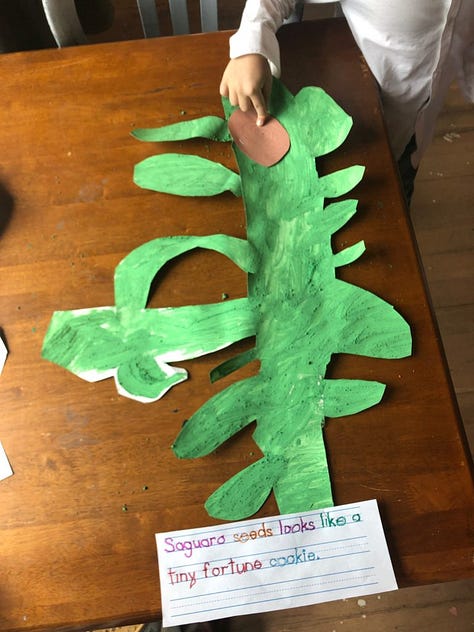
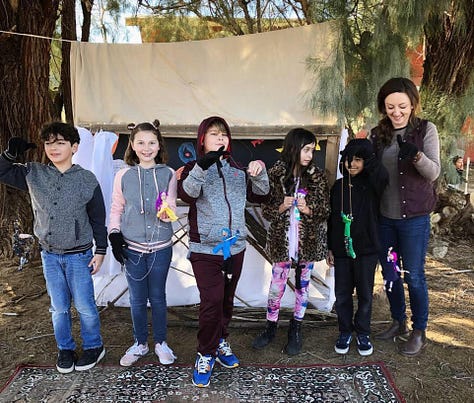

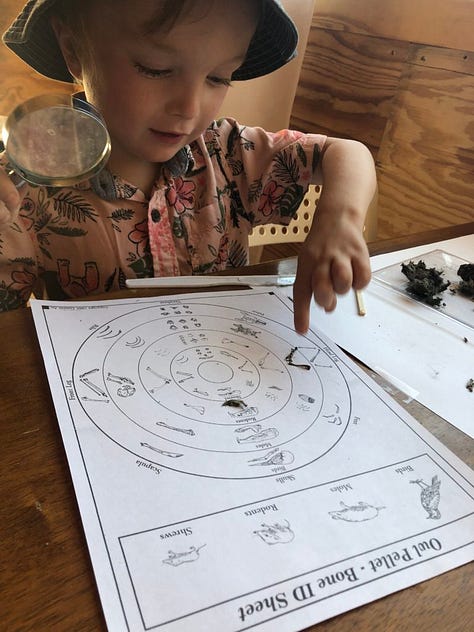




Why Caring, Responsive School Programs Matter
The Morongo Basin is home to an intensely under-served population of school-aged children (6-18 years) as well as young children (0-5 years). There are many, many hardworking and truly caring educators and volunteers who report to work in our public school system each day. As a product of a public school education myself and daughter of three public school teachers, I am passionate about supporting students, teachers and schools. I am noting this here, as my purpose in sharing some of the following narratives is to spread awareness of the myriad struggles families face, not to malign the efforts of anyone in our school system who is working towards comprehensive, caring, developmentally-appropriate education.
The national average for the percentage of students who are homeschooled is 3.4%. In 2020, Morongo Unified School District exceeded this amount with a rapidly-growing population of 19% students being homeschooled.
The majority of the students that my program serves have left the Morongo Unified School District (MUSD) for reasons related either to peer-based violence or bullying, or harmful or abusive practices on the part of the district. In many cases that have been shared with us, students with special needs who have an Individualized Education Plan3 (IEP) have experienced disciplinary action related to their IEP in schools. Students with Anxiety Disorders are not being given the accommodations they are legally entitled to4, suspended from classes due to behaviors that are a part of their Autism Spectrum Disorder diagnosis5, or subjected to highly restrictive practices not included in their IEPs. From the experience of one teacher, elementary students grappling with behavior challenges were excluded from recess or playground time and confined to play in a small courtyard, with no long-term planning around their return to the playground with their peers. While we understand that at times, concerns for student safety may involve short-term separations, as allowable in their IEPs, this teacher's opinion is that in this specific case, separation was being used as a longer-term strategy to ensure the school's suspension rates did not increase. In many cases these questionable, and at times illegal, practices continued even after concerns were raised by teachers, instead of students receiving the support the law affords them.
The stories presented here are shared without student or school names, by request, and represent only part of a larger problem. The sheer volume of similar experiences that have been shared over the years, as well as the notable statistics regarding families’ entry to homeschooling cannot be disregarded. Even in situations where MUSD staff may be approaching discipline in a developmentally-appropriate manner, the widespread disciplinary issues they are faced with are directly tied to our critical lack of quality Early Childhood Education.
It is worth repeating that these incidences represent some of the problems facing families in our community, and are not intended to describe a district-wide approach, or to discount the ongoing efforts of the many dedicated and caring individuals working in the MUSD. There are a great many intersecting needs around childcare and education equity in our region that require our attention.
The ECE field is often brushed off as merely daycare, “soft skills” or “just play”. Decades of research show that quality ECE is the foundation of raising healthy children who grow into capable and educated adults. Quality care is also an essential community service— enabling parents to work, receive the support and education they need along their parenting journey, and maintain balance. The social and emotional skills our society so quickly disregards are the same skills that enable children to build confidence and resilience when facing challenges, teach them how to access resources and support, and give them a framework for how to intersect with the world around them. How can we expect children to take on challenging academic subject matter if we are not able to first equip them with the emotional awareness and the tools to take risks and seek help?6
How We Serve the Community
Our mission at the Institute of Inquiry to provide high-quality education stems from this staggering economic and educational inequity. Throughout my years as a Program Director, I've become intimately familiar with the needs of families and how hard they have to work simply to exist. It is essential for young children and school-aged youth to grow up in environments and education programs where they're used to being heard and having their perspectives revered by the adults in their lives. Youth aged 16-24 (also commonly referred to as Transitional Age Youth) need avenues to explore their passions and interests, and to be afforded frequent opportunities to lead.
The Institute of Inquiry comprises two branches of educational services: our Interdisciplinary Arts Program for grades 2nd-12th and our Early Childhood Education Program for ages 3-7. Since opening in 2017, we have served over 160 families across the 9 communities of the Morongo Basin and awarded $83,330 in needs-based scholarship funds through ongoing support from the DEW Foundation, and local ceramicist Mark Walsh. We currently have seven available scholarships for full-time Early Childhood spaces, and three available scholarships for Interdisciplinary classes.




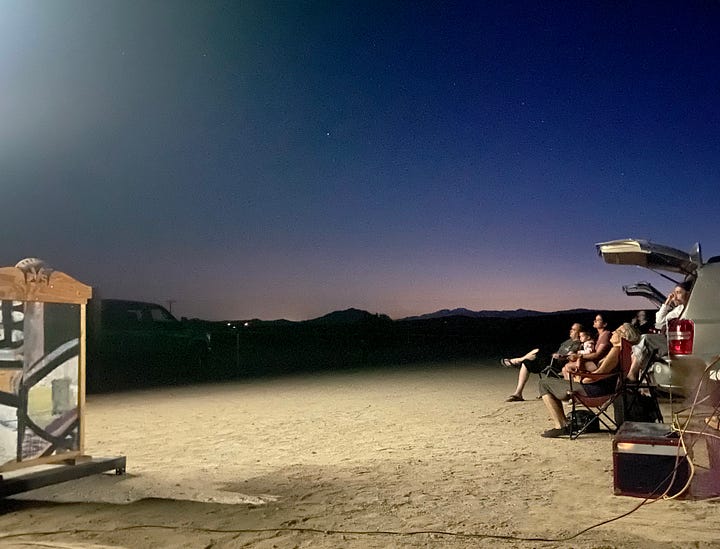


As a mission-based organization, we feel strongly about keeping our program affordable (less than the average hourly cost of babysitting locally7), paying a true living wage to our teachers and providing quality education for the long-term health of our vibrant but underserved community. Through committed relationships with the families we serve, our mission is to cultivate a lifelong love of learning in our students and facilitate a deeper understanding of our high desert environment through quality, child-led education. Our five year goal is to become an National Association for the Education of Young Children (NAEYC) accredited program. Currently, the closest NAEYC-accredited ECE program is 63 miles away in Palm Desert.
Over the past few years, we've held three drive-in movie Student Silent Film Festivals where students wrote, shot, acted in, edited, and directed their own films. Past films have included, noir thriller “Inverse,” and comedies “Wars of the Dance” and “Pirate of the West.” During the period of the COVID pandemic when in-person theater classes weren’t accessible, students wrote, performed and edited a radio drama, “Ants”, aired on local Z1077. At these events, there is always a choice for students to take questions from the audience. Students who were once reserved and shy in group discussions are now comfortable speaking on stage about their creative inspirations with authority and humor to a large audience of their peers, families and community members.
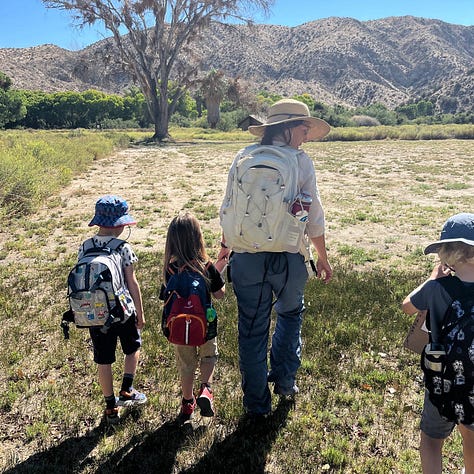

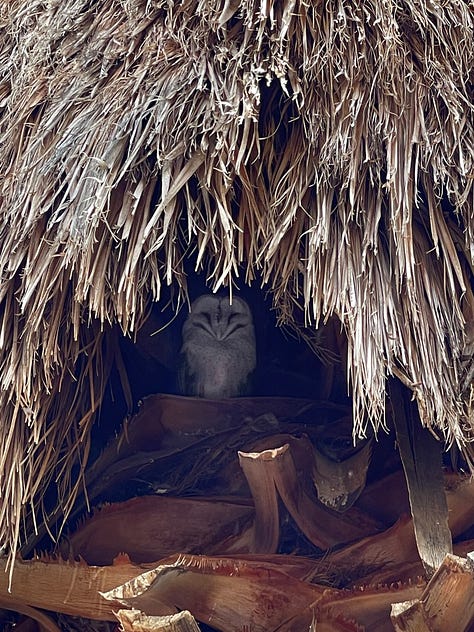






It is our continued joy to work with the families of the Morongo Basin, and we know that the Institute of Inquiry is only one solution in an ocean of need. Myself and my dedicated staff are incredibly proud of the work we do but we are also aware of the sheer size of the education equity gap families face. We are enthusiastic about partnering with other organizations to address the connected needs that families are experiencing, whether that's connecting parents to share hand-me-down clothing or gear, or serving as a site for a Food Distribution Program, or hosting used book swaps. Through the support of the LaGrappe Group in downtown Joshua Tree, we are growing our free parenting workshop series as well (sign up for our newsletter here). We’re seeking funding to support our ability to offer free consulting services and curricula for new teachers who are setting up a home- or center-based local program.
What You Can Do
Support Mission-Based Organizations
Your volunteer efforts, monetary donations, or in-kind donations can make a big impact.
I am asking for those residents who have relocated to our area from urban areas who have the ability to donate, along with non-resident Airbnb owners to consider the impact of your presence in the desert. A mere 5-10% percentage of your earnings could go a long way towards engendering equity in the high desert.
To get you started, here are a few organizations in need of your support.
Arts Connection San Bernardino is a pillar of support for the arts in our area. They offer teaching artist trainings, grants for artist projects, and act as a fiscal sponsor (a way to manage grant funding) for small, mission-based programs who do not have the resources to become a non-profit themselves.
The Institute of Inquiry offers sliding-scale tuition for quality ECE and school-aged Interdisciplinary Arts classes through donations, and can be made tax-deductible through our fiscal sponsor.
Groundwork Arts supports artists and students by placing local Teaching Artists in MUSD public schools, alongside other great arts organizations like longtime pillar of youth & adult arts education, the 29 Palms Creative Center.
Sanctuary Church has been grappling with many of the building requirements I spoke about here as they expand their food distribution efforts.
Unity Home offers support services for families experiencing domestic violence (If you are experiencing domestic violence or want to help someone who is, you can call them at 760-366-9663.)
Become a consistent, caring adult in a child’s life by volunteering your time at an MUSD public school.
Join the Teaching Profession
Early Childhood education is not just an acute need. It's also a highly accessible field. The 2020 census shows that Twentynine Palms has a per capita income of approximately 20k. Here 23.5% of our citizens live below the poverty line. And our unemployment rate is three times that of the national average.
ECE classes can be completed at Copper Mountain College in only two years, and tuition is often nearly free due to a state-based community college education grant. Working as a Preschool teacher does not require an Associate's Degree. Without the need for an undergraduate degree, this is an untapped pathway for employment and a solution to our critical lack of childcare. Professor Kim Martin, head of the Child Development program at the College, is an incredible resource, educator and an asset to our community.
Amend Twentynine Palms’ Building Requirements Around Infrastructure
The City Council of Twentynine Palms was invested in hearing from our program and our larger community on the issues of educational equity and childcare access. My hope moving forward is to see action around some of the resolvable limiting factors that prohibit growth of needs-based small businesses. The City has a lack of affordable commercial space, particularly west of Mesquite Springs. Commercial spaces are clustered along Adobe, which is not central enough to serve a Basin-wide need like childcare, and those spaces are often rented at a price point that’s out of reach for low-cost service providers.
The current development fee and infrastructure requirements for new construction are prohibitively expensive, and favor chain stores over local businesses and services. The requirements place an undue financial burden on childcare programs and other community-based offerings. Elements of City planning such as curb cuts and sidewalks are important in downtown regions of Twentynine Palms, but when community services are seeking to locate on commercial-residential parcels outside of the center of town, the $200K+ engineering price tag makes much less sense. Infrastructure is essential for planned growth, but the way we structure these requirements results in a startup cost of $500,000+ to build a 1200 square foot building, only to accommodate an engineered sidewalk that runs 300 feet along the length of one five acre parcel in the middle of the open desert. There needs to be a leveled approach to supporting business growth that takes into account the purpose of structures and their intended usage. We need to create more pathways for small businesses to serve the needs of our community. Resources like the New Business checklist are a great start.
Share This Information and Hold Your Representatives Accountable
We need quality childcare that is meeting the needs of students and families. In quality programs, teachers are observing and recording the progress of their students in all developmental areas. This information is then shared with parents, co-teachers, and used to support children’s’ growth with activity plans, new learning objectives and resources for families. Quality care includes and makes accommodations for children with special needs to the greatest extent possible. Culturally-expansive preschool settings are a requirement.
When I see proclamations such as October’s Hindu Heritage Month, I am incredibly proud to live in a City that is looking to improve its recognition of all residents. We need more responsive schooling practices that prioritize what is developmentally-appropriate for students, especially in the TK to 2nd grade levels. We need more programming around social emotional skill sets at ALL age levels to address the root causes of the disciplinary issues schools are grappling with. Teachers need to be supported.
The childcare crisis and educational equity gap for the Morongo Basin is untenable— for children, families, and for our community as a whole. Our lack of support affects residents’ ability to maintain employment, to care for their family, to consider their own mental health and stability and in turn affects their children’s healthy growth and development. As a community, our governing bodies, representatives and residents can no longer afford to ignore this need, as the costs to our social wellness, economic growth, school systems and healthy population are simply too great to bear. The High Desert has an opportunity here to be known not just for our adjacent park lands, but for our expansive, government and community-led support of rural education.
If you are interested in volunteering, or have ideas for community partnerships, please feel free to get in touch. Thank you to The Desert Trumpet and the City of Twentynine Palms for the opportunity to raise awareness and seek support for children and families.
Parent & student asked for their names to be withheld. Incident noted occurred 2017 in Joshua Tree.
Parents & student requested their names to be withheld. Incident noted occurred across the 2018-2019 school years.







The Administrative State wants access to your children PRE-K , I wonder how the THE FINE PRINT SHOWS, secret ( exparte) Communication with CPS, and an unlimited ammount of other crony shadow authoritys. This is the reason for the high number of home school children in the area . And I say no thank you to the FEAR SANDWICH YOUR OFFERING TO THE COMMUNITY IN OUR CHILDREN'S BEST INTEREST..#CRONY. #TOTALITARIANISM #APPLEWINE
ADDITIONALLY America is at the bottom of the first world countries in education. At this point we need to stop digging PUBLICLY FUNDED HOLES and simply adopt a the educational standards of the top country THE WORLD LEADER IN EDUCATION IS FINLAND. . go Finland!!!!
https://www.oph.fi/en/education-system